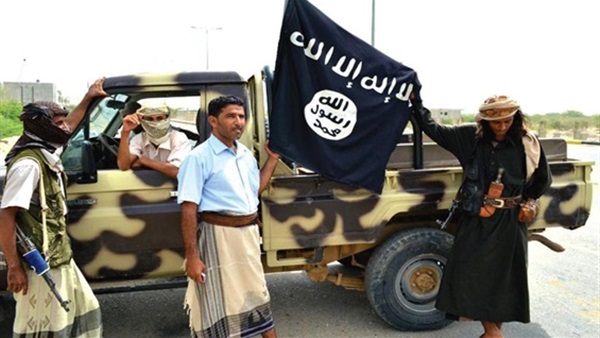With failure to choose Zawahiri successor, Washington closes in on al-Qaeda

Al-Qaeda has been facing a continuous stumbling block in
choosing a successor to its former leader, Ayman al-Zawahiri, who was killed in
an American strike in the Afghan capital in August 2022, in light of its
leaders being placed on international terrorism lists.
The US State Department announced the inclusion of leaders
from al-Qaeda in South Asia and the Pakistani Taliban on its list of terrorists
in light of the increasing warnings about Afghanistan.
US Secretary of State Antony Blinken confirmed that this
step falls within the framework of unremitting efforts to ensure that
terrorists do not use Afghanistan as a platform for international terrorism,
noting that Washington will continue to use all relevant tools to fulfill
obligations and ensure that terrorists are not able to operate with impunity in
Afghanistan.
Both the US State and Treasury Departments stated that these
leaders are classified as global terrorists, which makes it a crime to conduct
transactions with them, in addition to banning any assets they have in the
United States, in an attempt by Washington to tighten the screws more on the
organization at a time when it has stumbled in choosing a replacement for
Zawahiri since his death.
Al-Qaeda has been without a leader since a US drone attack
killed Zawahiri in a building in Kabul in August. Despite many names being
repeated as candidates to succeed Zawahiri, the choice has not been decided
yet.
The Egyptian Mohamed Salah Zaydan, who bears the nom de
guerre Saif al-Adl, is considered the most prominent candidate to succeed
Zawahiri. It is likely that he is around 60 years old, and thanks to his combat
experience, he is considered a veteran of the international organization.
The US Federal Bureau of Investigation named him one of the
world's most wanted terrorists, with a $10 million reward. A picture of Saif
al-Adl had been circulated earlier suggesting that he might lead al-Qaeda.
Since Saif al-Adl settled in Iran in 2001, he has not left
it, but the organization continued to claim that he was a prisoner inside Iran,
until recently, when Saif al-Adl admitted in a letter he wrote that his
presence in Iran was based on an alliance of interests, adding that leaving it
would be tantamount to “jumping from the ship to the grave.”
In 2014, a document appeared that identified the figures
nominated to succeed Zawahiri, including Abu al-Khayr al-Masri, Abu Muhammad
al-Masri, Saif al-Adl, and Abu Basir al-Wuhayshi. However, the change that
occurred in this document is that none of these names survived except for Saif
al-Adl.
During the last period, names of candidates for the
leadership of al-Qaeda were circulated, such as Muhammad Abbatay, nicknamed Abu
Abd al-Rahman al-Maghribi, who was the closest figure to Zawahiri. He was
responsible for securing Zawahiri’s communications and supervising the sending
of encrypted messages to organizational bases around the world, and he was also
responsible for the organization's media organization, As-Sahab.
The name of Khalid Batarfi also appeared, who has led the
al-Qaeda branch in the Arabian Peninsula since the killing of Qasim al-Raymi in
an American strike in February 2020. Another name is Abou Obeida Youssef
al-Annabi, also known as Yazid Mubarak, who is the leader of al-Qaeda in the
Maghreb, in addition to Ahmed Omar Diriye, also known as Abu Ubaidah, who is
the leader of the Somali Al-Shabaab movement, and Abu Humam al-Shami, the
leader of the Guardians of Religion organization (al-Qaeda's branch in Syria),
as well as Abu Abd al-Karim al-Masri.
Observers assert that the organization lacks the
organizational charisma and legitimacy that existed with the founder of the
organization, Osama bin Laden, and after him, to a varying degree, with
Zawahiri, noting that the organization has recently been suffering from a
leadership crisis and that the names that have been reported since the killing
of Zawahiri appear to have no organizational consensus, especially since some
of these candidates are located in certain countries, which raises suspicions
that these countries may be in control of the organization.





